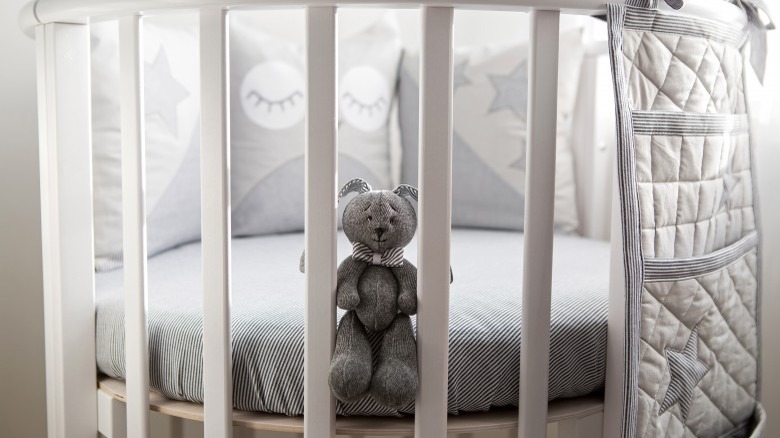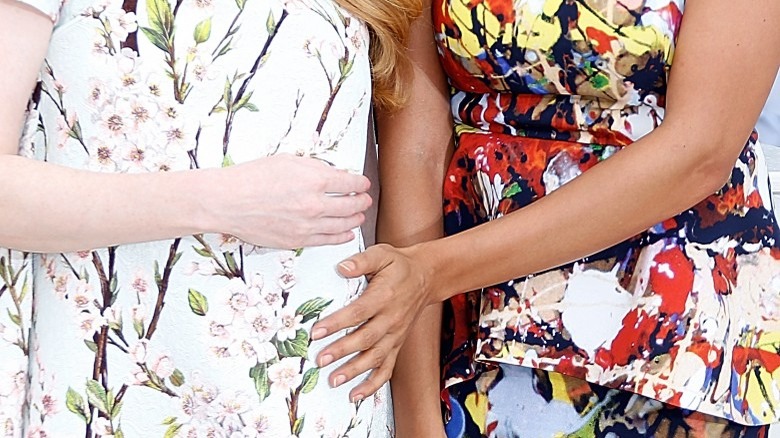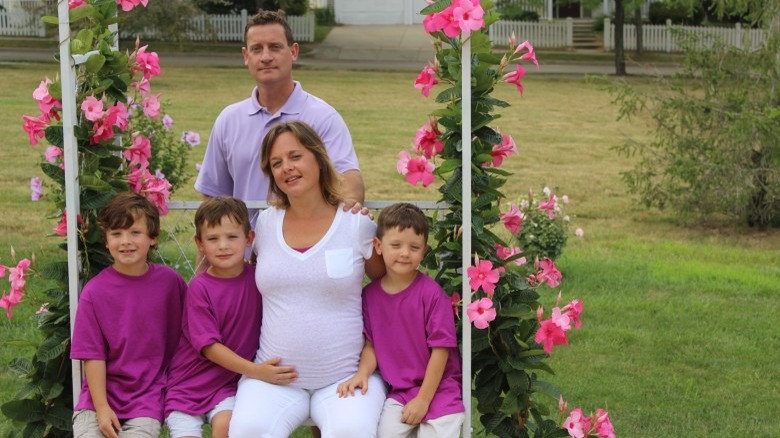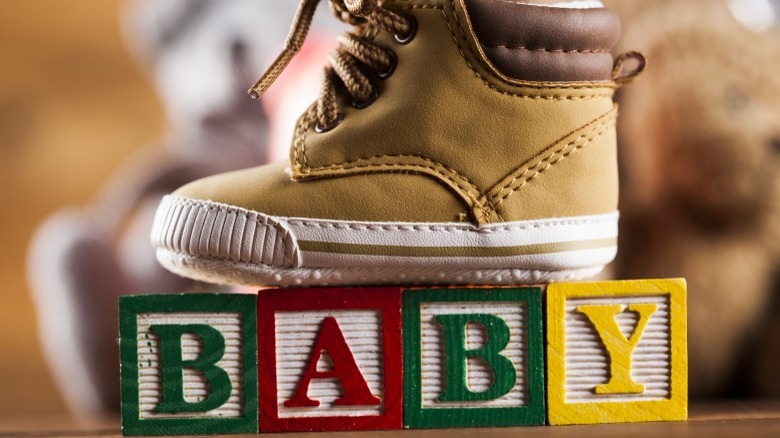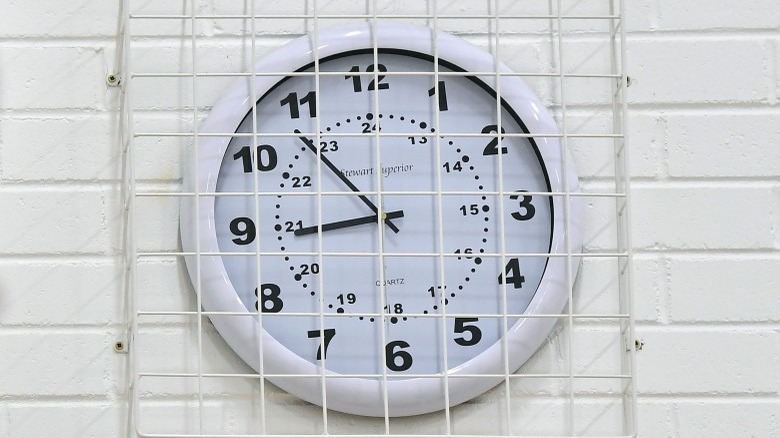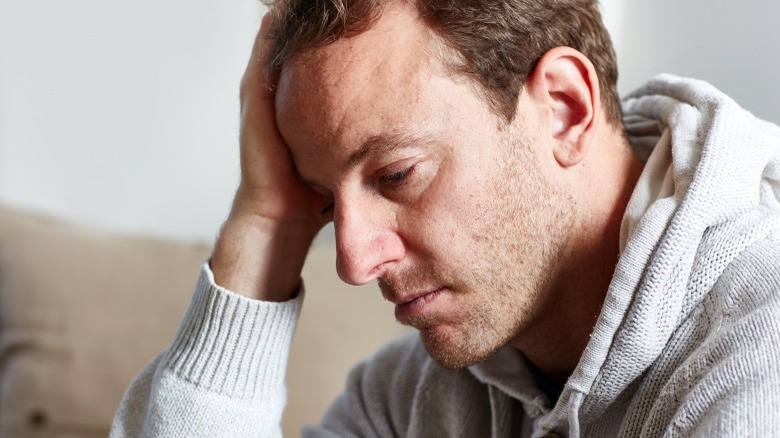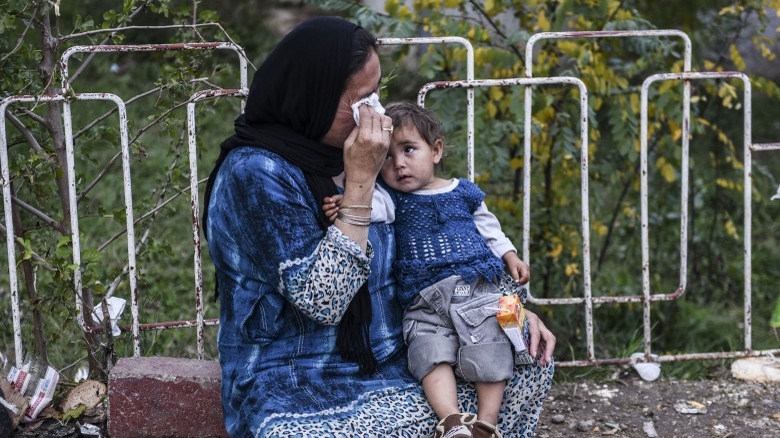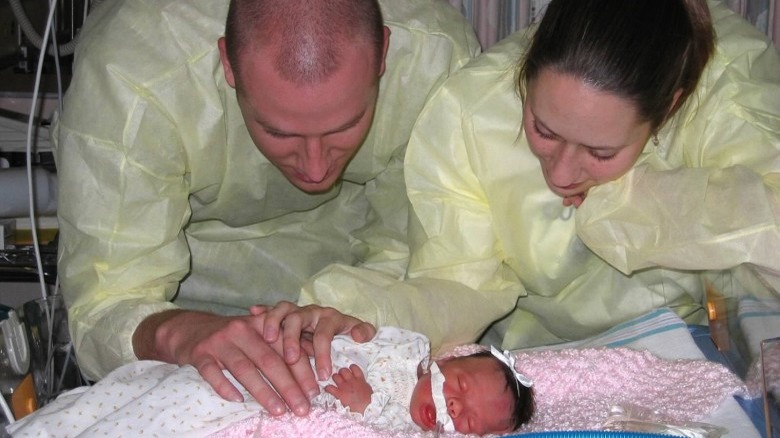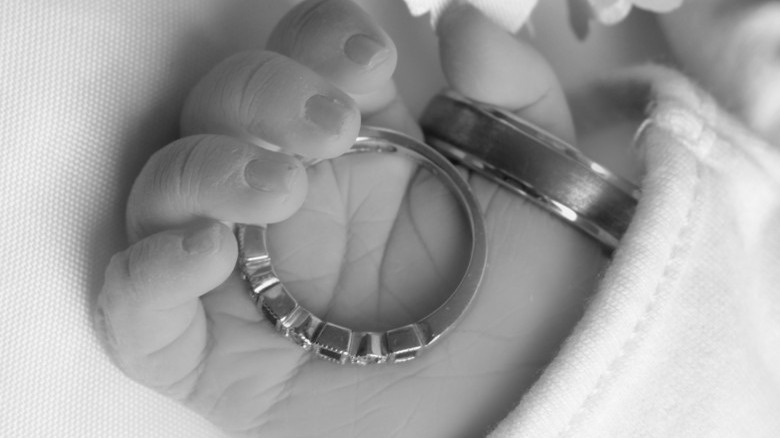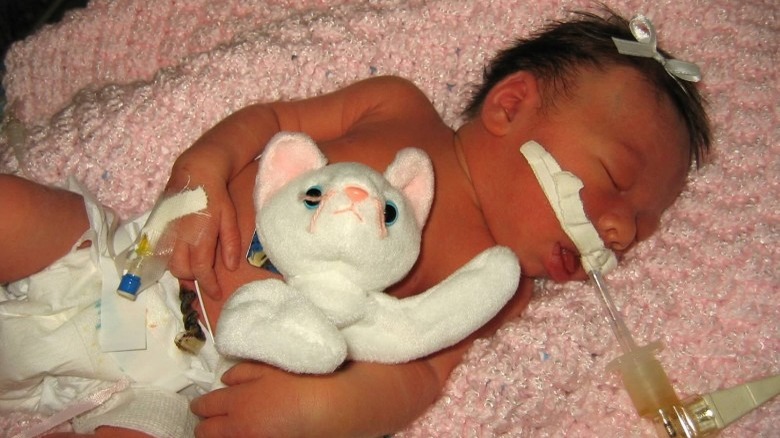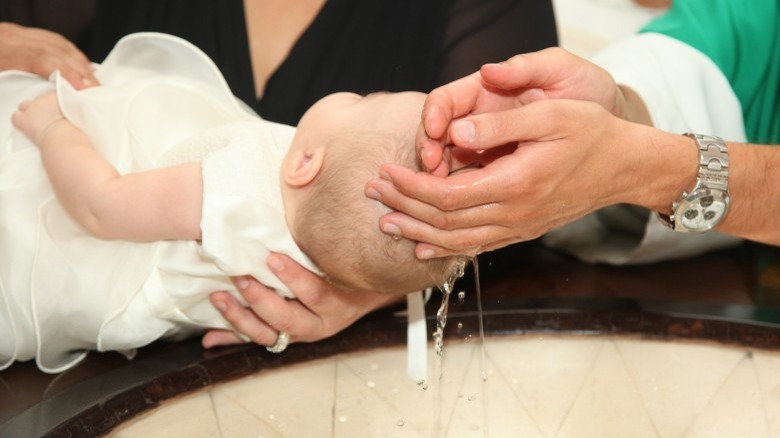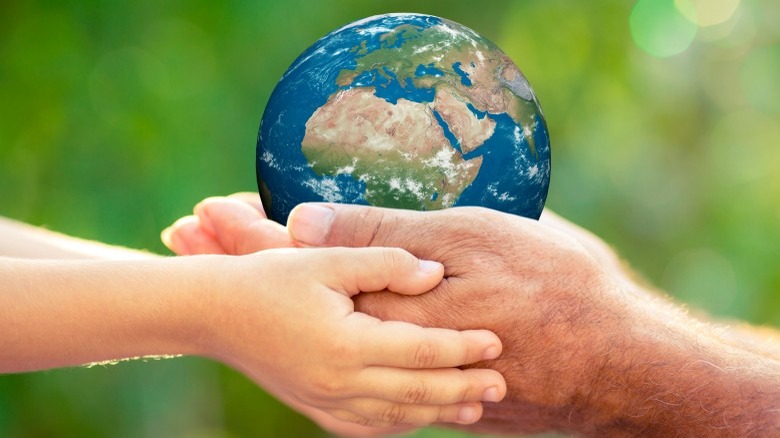How To Support Someone Who Lost Their Baby
The loss of a child seemingly goes against everything nature intended. Children are supposed to represent the continuation of life, so when a child dies, it cuts to the very core of our existence. But like so many other aspects of parenting, unless you've lived through it, you really don't (and can't) know what it's like to lose a child.
People often compare grief. The mother who loses a 3-year-old in a drowning accident is expected to grieve harder than the woman who loses a pregnancy at 8 weeks. But grief is grief. I personally lost a twin pregnancy at 13 weeks, and I spoke to two mothers who have also lost children. One mother lost her child in utero at 39 weeks, and another mother lost her daughter three days after she was born. Each had her own perspective, but the common thread among parents who have lost a child seems to be that this loss is like no other.
It's a subject so taboo and painful for people to think about that those who haven't gone through it often don't know what to say or how to support a parent who has lost a child. Sometimes a little insight can make all the difference. So here are ways you can help support someone who has lost their baby.
Accept that she will never be the same
Melissa Clark, a licensed clinical social worker, lost her daughter Eva at 39 weeks gestation. One day everything was fine, and the next it wasn't. Clark said one of the hardest things to deal with was the way her friendships changed. Her advice to friends of a mother who has lost a baby is to not expect that she will ever be the same. "She will come around and have some areas where she is the same, but never truly the same," Clark said. She is rougher, wiser, less judgemental, kinder and more compassionate. She has a new understanding for life, but honoring her baby will forever be a part of that life. Losing a baby will forever change her.
Don't judge
You never know how you'll react to something so earth-shattering until you live it. Don't judge a mother or a father in their grief. Clark said if you see concerning behavior like the mother expressing a lack of desire to live, address it with her. But listen to her, and be aware of what normal grief looks like. Just don't try to tell her how to feel.
Acknowledge that friendships won't always survive
Clark said some friendships can't survive the loss. Not only will the parents of the baby change, but they may not be able to give anything to the friendship for a while. "Recognize that you may be a friend that can stay through this season of her life, and maybe you cannot," Clark said. Just be comfortable with what you decide, and know that the grieving parent will not be able to keep the friendship alive. If you show up, then do so without expecting her to be the same person she once was, or even contribute any wonderful dialogue.
Understand that it's traumatic
A baby's death is never an easy thing to witness, but for some it's beyond traumatizing. Amy Martin, an emergency room physician, lost her daughter Savannah at 3 days old. Savannah had a terminal brain disorder and was placed on anti-seizure medication that suppressed her respiratory drive — so, basically, in order to stop her brain from seizing, her life depended on a ventilator. Martin had to make the decision for her daughter to seize to death or suffocate, a choice no mother should have to make. She made the decision to let the anti-seizure medication wear off and keep her on the ventilator until her last breath. When she should have been deciding on which outfit to leave the hospital in, Martin was making an informed choice on how to let her baby leave this earth.
Understand that her body can be cruel
The day Savannah died, Martin and her family all drove to Pensacola, Florida and watched the sunset. But since it was three days after birth, Martin's milk came in on the way home. Breast milk and postpartum depression are often salt in the wound for mothers who lose their babies. Martin said she didn't know about milk donation, but looking back she wishes she could have donated Savannah's organs and her milk. Some parents find that donation gives their babies lives more of a legacy.
Don't say "she's in a better place"
The only place a grieving parent wants their child to be is in their arms. Even the most spiritual person is human. They want their baby to take their first steps, get paint smudged on her face on her first day of kindergarten, and have a favorite movie they watch over and over. While the sentiment is nice because it's meant to offer comfort, to a grieving parent it's a slap in the face and a reminder that their baby isn't with them. If other people get to have their children on earth and in Heaven, why shouldn't they?
Avoid small talk and be sincere
Don't ask "How are you" unless you really want to know. Clark said she has one friend who asks and actually really wants to know how she's doing. She'll listen to rants and raves and tears with no judgement — only concern. If you aren't sure you're prepared for that, try saying "I am thinking about you" or "I know you are hurting — I care and I'm sorry."
Don't start sentences with "At least you..."
Don't say "At least you have other kids" or "At least you can try again." Those phrases completely negate the life of the baby. Don't equate the baby to a pair of tennis shoes that can be replaced. That doesn't help them feel any better. Recognize the life that these parents lost.
Telling a parent to be thankful they have other children is like saying "look at your living children, which of them would you be okay with dying," Clark said. If someone's grandmother died you wouldn't say, well at least you have some grandparents left. Take a moment to realize the baby was a person.
Don't ask how you can help
Asking "How can I help" is basically giving the parent a task. They don't really know what they need. If you want to do something, then help however you'd like. The meals, cards texts and gifts are comforting, but there's actually nothing you can do to "help." Grieving is just one of those things they have to do on their own. Being accepting, patient and non-judgemental of their grief is the greatest help of all, Clark said.
Say the baby's name
One of the greatest ways to acknowledge the life that was lost is to say the baby's name. If the parents have named the baby, try not to refer to her or him as "it" or "the baby." Talk about him as a person, just like you would if he had been a 15-year-old child. That baby was someone's son or daughter. He or she was a real human being, and one of the greatest identifying distinctions we have as people is our name.
Don't put a time limit on her grief
Time does not heal all wounds. Just like a major, traumatic surgery, this wound will always need attention. Sometimes the scab gets peeled back and the pain is just as raw as the day it happened. And some days are okay. Lisa Bahar, a licensed psychotherapist in Newport Beach, California, said this kind of pain will always remain. It's not something someone just gets over.
She said it's like a pebble in your pocket. At first it might feel like a boulder, but eventually you learn how to carry the weight. "There's a part of me that hopes a parent would never 'get over it,'" Bahar said. It's honoring to the baby's life to think that their presence will always be remembered. It shouldn't completely steal your joy so that you never feel happiness again, but remembering the baby is an important part of healing.
Don't forget Dad
Fathers often get lost in infant loss because it didn't physically happen to them. But Bahar said they are very much a part of this as well. They feel the loss deeply, and they often don't know what to do with that grief. They are trying to hold up their partner, but they'll need support as well.
Understand that parenting their living children will be different than before
Clark said it was important to be honest in her grief for her living children. Seeing her reaction allowed them to grasp the magnitude of her love for them. But she still had to find the time to be involved in her living children's lives. She attended events when she could, she read with them, and she laid down with them. She didn't hide her feelings, but she had to find a balance in what they could handle.
She said parents will have to accept that they will have thoughts about their other children dying. You aren't crazy because you have lived this reality. Just do periodic check-ins, and accept that you might be more protective of them for a while. Children aren't your counselors, but they can be a source of comfort. Allow your spouse to step in and parent when you can't. But don't forget his or her grief as well.
Do not make it about you
Because Savannah's condition was unknown until she was born, Martin had to field a lot of difficult congratulatory calls. One call came from a friend who burst into hysterics when Martin told her the baby wouldn't survive. Martin said she felt like she needed to console her friend, but she couldn't hold anyone else up when she was barely holding herself together.
She said looking back she actually finds it endearing that her friend loved Savannah so deeply that she felt the loss as her own. But don't always expect a grieving parent to recognize those sentiments right away. They are dealing with a major trauma, and they often don't even know how to handle their own grief. Yours has to come secondary. Bahar said it's fine to normalize the loss by sharing your own story if you've lost a baby as well. But remember not to make it about you or your loss. This is about their pain.
Acknowledge that silver linings do exist for some moms
People often told say it is "the worst thing they could imagine," but Martin said she saw a silver lining in her experience. "I thought we were more fortunate because we had a few days," she said. People often asked her if it was so hard to lose her baby shortly after birth, when she had no signs of any problems during her pregnancy. But Martin said not knowing was the easy part. She has nothing but happy memories of her pregnancy and birth experience. She didn't have any tough choices to make while pregnant, and she knows not every mother has that.
Understand that their photos are precious
Another reason Martin feels fortunate is that she has photos of Savannah when she was still alive. Even though she passed away shortly after they were taken, for some reason those photos are seen as less taboo for some people than photos of babies who were born still. Martin said most people have been accepting of her photos, and she feels fortunate she can share them without people being afraid.
She said that although stillborn photos are more common now with organizations like Now I Lay Me Down To Sleep, even 10 years ago, the photos were very taboo. Clark also has photos of Eva, but she wasn't born alive. It can be very isolating for a proud mother, who looks at the photos as loving representations of their children, not to be able to share those like other mothers share pictures of their living children.
Be particularly sensitive and careful with your words
Martin said one of the hardest things she experienced was totally avoidable. In the postpartum unit she often had to keep explaining her daughter's prognosis to the nurses on staff. Nurses would come in offering their congratulations, and she'd have to keep saying over and over that she wouldn't be bringing her baby home.
One nurse told her to "just have hope," which was a knife to the gut. Of course a mother hopes her child will be okay, but Martin's daughter couldn't survive. Telling her to hope for a miracle basically felt like the nurse was saying "Well if she dies it's because you didn't wish hard enough." Martin said it wasn't fair that she had to be the one to say "We're taking her off the ventilator tomorrow." The nurse basically made her feel like she was giving up on her child.
One of the other things she remembers was the pediatric neurologist who broke the news of Savannah's condition. Her tiny baby was lying there in the crib while she tried to process this traumatizing information, and all the doctor could say was "You can touch her. She's not a monster." It still shakes her to the core that the doctor didn't let her process her own grief and even insinuated that she thought her daughter was a monster. "I want to tell him, 'Do you realize that 14 years later I remember the words you said and how they made me feel?'" she said.
Do not say "It was all part of God's plan"
One of the worst things to tell a grieving parent is that their child's death is all part of some grand plan or that a higher power willed it. Martin said she considered herself agnostic up until the loss of her child. A pastor told her: "Sometimes sh*t happens, and God is just there to help you get through it." He didn't try to convince her that this was a part of some amazing plan or that it was meant to be. He just gave her a higher power to lean on and pull her through her loss. She realized then that Savannah couldn't just be gone. She was okay, and she wasn't hurting anymore. They baptized her before she was extubated, and, although the pain remained, she found comfort in knowing that it was just a very horrible painful part of her journey.
Understand that choosing a final resting place is deeply personal
Martin and Clark had different ideas for resting places. Martin said when Savannah was born, they were in a rental house. Since Savannah never left the hospital, Martin felt like she really didn't have a home. Instead of burying her in a place they weren't settled, she had her cremated and they scattered her ashes in St. Maarten, where she and her husband Chris had their honeymoon. "Her resting place is the most beautiful, romantic, serene place on earth," Martin said. And we take family and friends there to celebrate her life. It's a joyful place, which brings her some peace. It has cut some of the sadness and grief that comes with losing a baby.
For Clark the cemetery was the right choice. She finds it beautiful and peaceful, and she's even friends with the cemetery director. But the peace comes and goes. Sometimes she can stop, and sometimes she has to just pass by because stopping is too much that day. "[Sometimes] I have somewhere to be and the mascara-streaked eyes just aren't ideal," Clark said. She struggles with feeling like she is putting Eva aside, but she takes comfort in knowing she's not alone. The cemetery is a place she can see other babies' names, and it knowing that she isn't the only parent going through this is actually comforting.
Understand that it's hard for her to see the world move on
For the days, months and years after her daughter's death, Clark kept thinking it was just a nightmare she'd wake up from. "I had a running dialogue in my head 'Did you know my baby died,'" she said. In the grocery store, at work, at sporting events and everywhere it was shocking to see the world just going on without Eva in it. There were definitely days she barely got out of bed, she avoided situations and stayed home because her life just wasn't normal.
Things weren't okay. "I had a very distinct moment when I chose to 'pull myself together'" she said. She decided to fake it 'til she could make it for her living children. "I realized they needed to see me smile, even if for a while I was pretending," Clark said. "I had to live for them."
Support them in their own time, on their own terms
For mothers and fathers who lose a baby, support is essential. Professional counseling is great, but they can also reach out to their spiritual leaders and friends. Parents need a safe space where they can explore their feelings and talk openly about their experiences. Bahar warns that if parents try to delay this part of the healing it will only catch up to them later. However she said friends should let the parents guide the conversation. Don't force them to talk before they are ready, and don't tell them how to feel.
Acknowledge that she has to balance her grief along with the guilt of moving on
Clark said she makes a conscious decision every moment of the day not to be consumed by her grief. But making the choice not to think about her daughter also brings feelings of guilt. How can you "move on" with your life when so much has been lost? It feels like the world should stop, and it's easy to feel angry and guilty when it doesn't. Clark said people would say "It's good to see you out and doing better," but what they mean is "Whew thankfully you are okay. I can now feel more comfortable around you."
She said parents with loss are masking their pain so that they aren't seen as wallowing, and it often takes a massive amount of energy just to function for her family and everyone else so that she doesn't feel more isolated than she already is. Bahar suggests mindful meditation. She encourages parents who have lost a child to meditate on their baby and wish him or her peace and serenity. Being mindful about their life, acknowledging his or her existence, and wishing them well can help to alleviate the guilt that comes with picking up and getting out of bed each day.
Losing a baby can cut to the core of a person's existence. It's a wound that will never fully heal, and as Martin put it, the hole will always be there, but the pain won't always be as sharp. Over time it will dull. But that baby mattered to someone, and his or her life should be celebrated and acknowledged.
